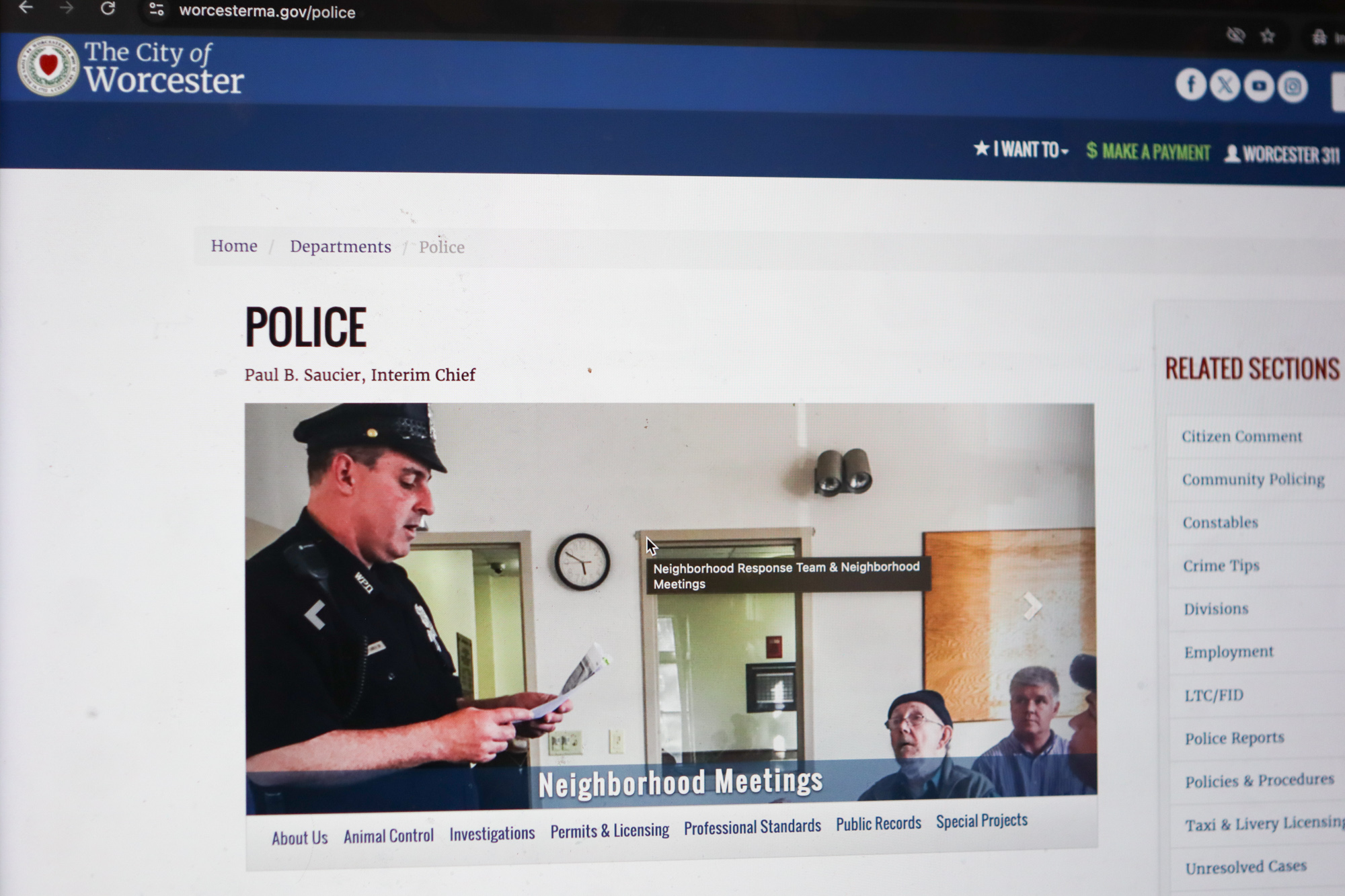The U.S. Department of Justice ordered its Civil Rights Division to pause any ongoing litigation from the Biden administration Jan. 22, bringing several police misconduct investigations to a halt, including one involving the Worcester Police Department.

A two year investigation into the WPD found evidence of excessive use of force and sexual contact between police officers and prostitutes. However, with this order, it’s unclear if Worcester police will face any discipline.
The Civil Rights Division “accepts and reviews complaints alleging civil rights violations and brings enforcement actions under state and federal laws that prohibit discrimination.” This includes the investigation of police misconduct cases, including one involving the Worcester Police Department.
Sophia Hall, the deputy litigation director at Lawyers for Civil Rights, said she and her colleagues were involved in this investigation.
Allegations held against the Worcester Police Department included racial profiling, over scrutiny in communities of color and sexual misconduct, said Hall. The investigation also revealed a pattern of excessive force violations and misuse of police equipment, such as tasers and canines.
“The idea of sexual assault by a person who is of authority, particularly a police officer … is likely one of the most problematic misuses of authority that we see in any space,” she said. “It’s sort of different than traditional physical violence and excessive force.”
Hall said the DOJ’s initial decision to engage in this investigation implies concerns were reaching a significant level. The DOJ’s recent order makes it unlikely for civil rights lawyers to take any further action.
“We expect that we’re going to lose even the very limited amount of support that we receive from the federal government when it comes to addressing overreach and unlawful behavior by police departments in this country,” she said. “The outcome of this investigation appears to be that it ends with the report itself, and there won’t be any action taken.”
Karen Pita Loor, a clinical professor of law at Boston University, said the investigation against the WPD is an example of what is considered a “traditional” civil rights violation since it involves discrimination, sexual harassment of women and disparate policing of minority groups.
Loor said there has been a shift in the definition of civil rights violations since Trump passed an executive order Jan. 21 aiming to “end illegal discrimination and restore merit-based opportunity.”
“What his administration is doing is really reshaping what the government will call a civil rights violation as anything that would be characterized as DEI types of initiatives,” Loor said.
She said this shift will empower “bad actors” in law enforcement to abuse authority.
In responding to situations like this, Loor said activism is vital, but she is worried about how activists will be treated under the Trump administration.
“Activism is always important,” she said. “But, I understand also if people feel chilled and worried about engaging in activism based on the position on protest by this administration.”
She said people can also advocate for change on a state level by pressuring local and state actors to investigate abuses of power by law enforcement officers, but it can be “very tough” to do.
“We do have the Attorney General’s Offices, for example, at the Massachusetts state level,” she said. “So, [this means] depending on local and state authorities to police the police.”
Jack Beermann, a Philip S. Beck professor of law at Boston University, said there is nothing anyone can do about the DOJ because it has prosecutorial discretion, which is the power to decide how the law is applied to an individual.
Despite this, Beermann said there are still opportunities for both local governments and individuals to push for change.
“States themselves could pick up the slack and do investigations of their local police departments, and people can sue the individual officers, and in some situations, the cities and towns for civil rights violations,” Beermann said.
This would still be less effective than if action were taken on a federal level though, Beermann said.
Loor said DOJ officials’ abilities to stand up against pressure from the executive branch are also very limited due to the results of the 2020 Supreme Court Case, Seila Law vs Consumer Financial Protection Bureau, making it possible for the president to fire most federal officers without Congressional approval.
“The president has no trouble or no qualms about firing someone … in a retaliatory way,” she said. “It’s really going to be difficult for Department of Justice officials to stand up to pressure from the executive unless they are willing to give up their jobs.”
The United States Attorney for the District of Massachusetts, Leah Belaire Foley, wrote in an email to the Daily Free Press she would comply with the recent order.
“As the United States Attorney I am responsible for supporting the mission of the Department of Justice which includes implementing policy consistent with federal law,” she wrote. “We are reviewing the order and will comply with its directive.”
Hall said the timing of this rollback is critical.
“Following the murder of George Floyd, we as a country have only just gotten to the place where people are recognizing the idea of police requiring more oversight,” she said.


















































































































